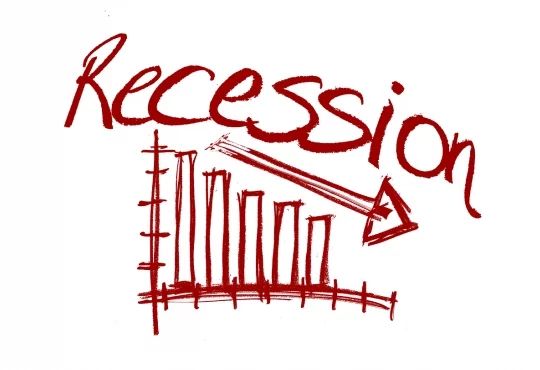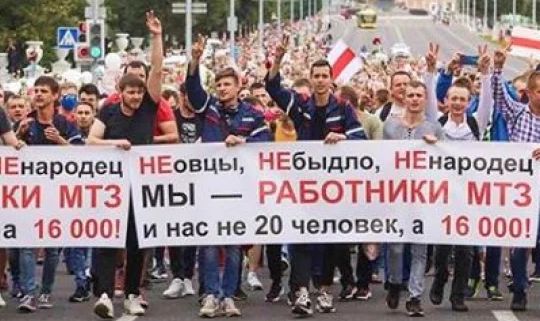Dean O’Donnell is a member of Socialist Alternative (England, Wales & Scotland).
The accumulated rage of the Guatemalan masses reached boiling point on Saturday, November 21. A wave of protests erupted in response to a new government bill that, in the midst of a pandemic, proposed major cuts to healthcare and education. Tens of thousands took to the streets in demonstrations across the country and by the day’s end, smoke billowed from the congress building, set ablaze by a group of protestors.
Despite delivering austerity to the Guatemalan working class and poor, the budget was in fact the largest in the country’s history. With $65,000 allocated to subsidise politicians’ meals and much of the increased funding going to infrastructure projects set to benefit big business, the bill symbolised all that was rotten in the Central American country – more misery for the poor, more hand-outs to the ruling elite.
Establishment Shaken
Calls have been made for the president Alejandro Giammattei, of the right-wing Vamos party, to resign. The former prison officer came to power a mere 11 months ago on the back of a “tough on crime and corruption” campaign. A complete reactionary opposed to abortion rights and same-sex marriage, he has vowed to reinstate the death penalty to deal with gang violence.
The protests certainly have shaken the establishment. The budget has since been taken off the table, with congress voting for its annulment on Wednesday. Pressure from below has also opened up cracks in the ruling class. Vice-president Guillermo Castillo quickly took to the media to offer his resignation and said that the president should do the same. Giammattei, on the other hand, focused his energy on condemning vandalism.
In doing this, he sought to justify the notably brutal response of the National Civil Police. Tear gas and rubber bullets were fired into peaceful demonstrations and so far 37 people have been arrested and 22 reported injured. Nevertheless protests continued into the week with student and Indigenous groups demanding that Giammattei step down.
Comparisons have been made with a mass movement against corruption that swept Guatemala in 2015 and forced the resignation of then-president Perez Molino. He was succeeded by TV comedian Jimmy Morales, an outsider who based his campaign on being “neither corrupt, nor a thief,” yet who throughout his four and a half year term was himself mired in allegations of illegal campaign financing. More importantly, since 2015, little has changed in the conditions endured by the Guatemalan masses. Indeed they have only gotten worse, particularly in recent months.
Storm Eta and Covid-19
The demonstrations come in the wake of storm Eta, a category 4 hurricane that has left a trail of destruction across Central America. Guatemala was hit particularly hard, with at least 150 confirmed dead or yet to be found. Indeed the government seized the opportunity to pass the new budget hoping it would go unnoticed as many still picked up the pieces in the wake of a disaster that destroyed the homes and livelihoods of thousands.
The storm only added to the devastation created by the pandemic. Guatemala has recorded nearly 120,000 cases of the coronavirus and more than 4,000 deaths, although the actual numbers are undoubtedly higher. The economic fallout from the Covid crisis has driven millions into even deeper poverty, as the informal economy ground to a halt. During the strict quarantines earlier this year, Reuters reported that “hundreds of signs have gone up asking for food, and people have taken to the streets to wave white flags in distress.”
For many of those that remained in work, the picture was not much brighter. Guatemala’s garment industry, whose cheap labour costs attract big US companies, was struck particularly hard by the virus. In one KP Textil factory that supplies Gap, Amazon and American Eagle, 200 of the 900 workers tested positive. The health and well-being of this mostly young and female workforce is clearly secondary to the massive profits that their super-exploitation delivers for both US and Guatemalan business.
Of course, neither the storm nor the pandemic are indiscriminate natural disasters. Decades of US imperialism and brutal neoliberal policies have left Guatemala lacking the most basic infrastructure and services needed to tackle such crises. Even so-called “normal” times see broad swathes of the masses live in extraordinary misery. Over half of the population experience poverty with 47% of children under 5 years old chronically malnourished.
Which Way Forward for Guatemalan Masses?
The revolt against the proposed budget is therefore also a revolt against a system that creates continual suffering for the working class and oppressed. Yet, the quick turn-around by the government points to the potential strength of workers, youth and indigenous people. It’s this strength alone that must be relied upon to deepen and extend their struggle – not the empty promises of “anti-corruption” politicians.
That the ire of the masses has been directed at brazen corruption is understandable. The working class and poor correctly see an out-of-touch ruling class with interests diametrically opposed to their own. A thousand threads bind big business to the political establishment, who do all they can to give the profiteers a free run to plunder and exploit as they please. For this, the politicians are rewarded – be it through illegal bribes or the bestowing of rewards, privileges and opportunities that the legal system does not consider criminal. In this sense, corruption, in one form or another, is a permanent feature of capitalism. We should have no illusions that the issue can be stamped out as long the system itself is one based on the tireless pursuit of profit at all costs.
Bitter lessons have undoubtedly been learned since 2015 and the current protests are taking place within a wave of radicalisation and revolt sweeping Latin America. Mass movements against the neoliberal order have rocked Chile, Ecuador, Peru and Colombia. With the deepening of crisis throughout the region the mood to fight-back will only spread. What is needed in Guatemala and elsewhere is an organised mass movement that draws together the exploited and oppressed in a struggle for socialism, that once and for all breaks with capitalism and imperialism.




